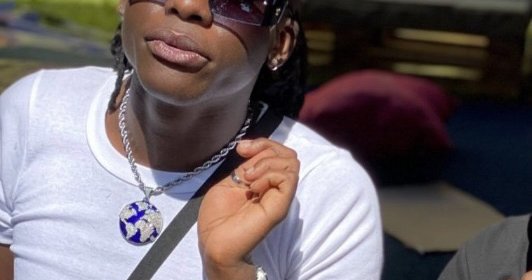
In Uganda, same-sex relations are criminalised under a colonial-era penal code law. A sexual offences law passed last year explicitly bans “a sexual act between persons of the same gender”, and there have been repeated attempts to impose a death penalty for homosexuality.
Distrust of the police among the queer community is not new – or unfounded.
Activists have long expressed concern about the slow action and lack of results from police after the murder of LGBTIQ people.
Last year, a 21-year-old-gay man called Yiga Karim – another one of the 16 people arrested at the Let’s Walk Uganda shelter – was found dead in his bed in mysterious circumstances. Activists are still demanding answers from the police.
Days after the burial of Matthew Kinono, the offices of LGBTIQ organisation Visual Echoes for Human Rights Advocacy (VEHRA) were broken into and trashed, with valuables stolen. The group’s premises in Makindye, a suburb of Kampala, are about 200 metres from Kinono’s home, where they were found dead.
Steven Muleme, executive director of VEHRA, told openDemocracy that he only reported the robbery to police “for purposes of records”. Days after the break-in, he received an anonymous phone call from someone claiming to be behind the robbery, who threatened to blackmail and kill him.
But Muleme said he does not trust the police enough to tell them the truth about the work his organisation does, his sexuality and its relevance to the incident. “It would only continue to put me at risk,” he said. ‘I can’t trust the police, especially the Ugandan police.”
Friends speak out
Eric Ndawula, former executive director of Let’s Walk Uganda, was one of the 16 arrested in 2019. He had first met Kinono earlier that year, and they remained friends. Ndawula told openDemocracy that Kinono had tried to keep in touch with everyone long after they’d left the shelter, which has now relocated.
After the news of Karim’s death, Kinono quickly reached out to the rest of the group. According to Ndawula, “[Kinono] said: ‘You people, it’s been two years and we haven’t seen each other and now one of us is dead.’ So they formed a WhatsApp group for us. Now 14 of us are left.”
Despite what happened at the shelter, Ndawula said the neighbourhood had “some sort of social protection” and that Kinono probably thought this too, as they decided to rent a room opposite the shelter as soon as they could afford their own housing. They often offered temporary accommodation to other queer people, with up to four people sometimes staying in their single room.
Friends say that, later, Kinono wanted a more spacious place and found a one-bedroom apartment across town where they continued to offer space to other queer people in need. But only days after they had moved in, they were found murdered.








